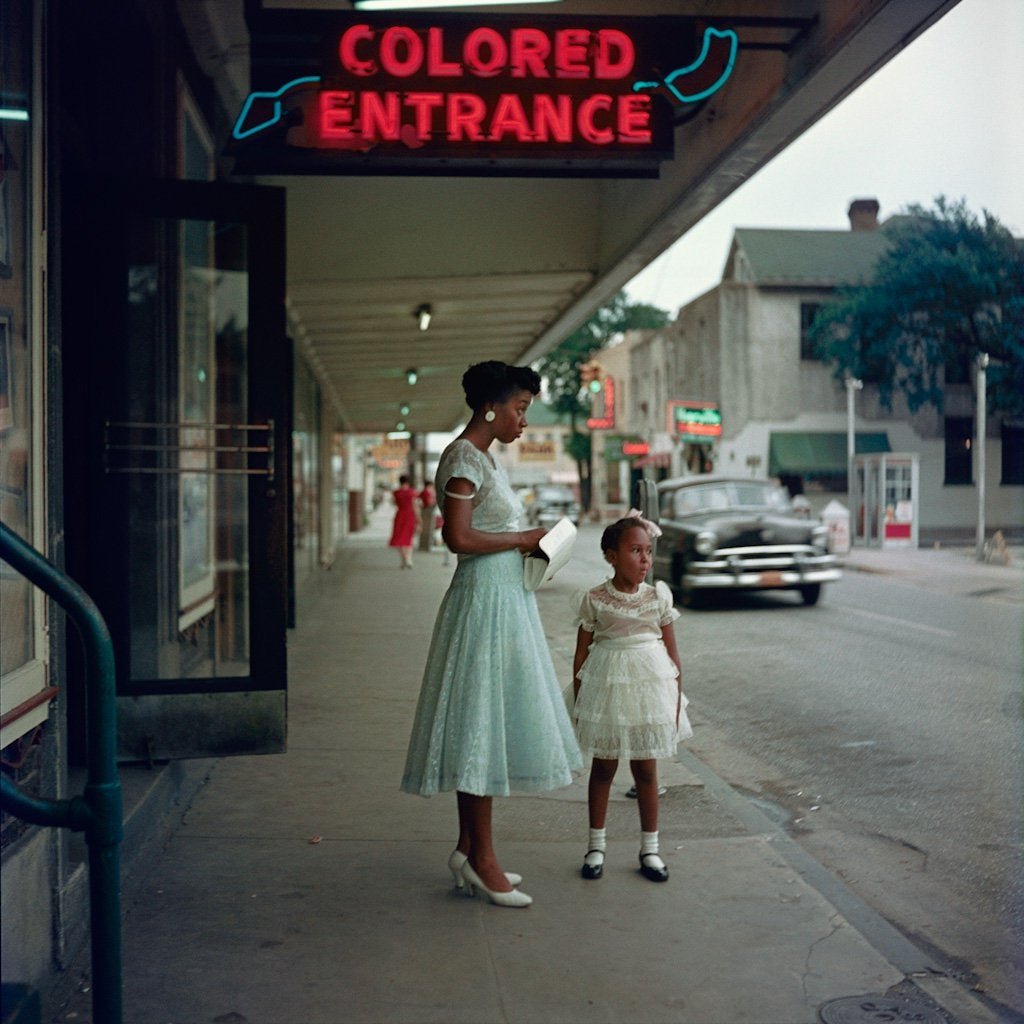Why are we talking about race in 2012?
I’ve been asked these questions:
Why are we still talking about race?
Doesn’t bringing up racism just divide us more?
After listening to Mark Dever interview John Piper on 9Marks about Piper’s book Bloodlines, I realized I’m not the only one being asked these questions. Some people are ready to move on from the topic of race. Piper’s book has been well received overall, while others think it’s bringing up history that we have all moved on from.
But perhaps the eagerness to move on isn’t because we have true peace and unity but rather to no longer face the fact—racism still exists even in 2012. But more than that, it exists in the church and we really don’t know what to do about it. And that is exactly why we need to have these conversations.
Please sit with me, so to speak, and hear me out. There are several reasons why I believe we should talk about the issue of race and the church. I’m only going to scratch the surface with this brief post; but if you would read and consider it I hope that you will be inclined to engage in conversation the next time you are faced with discussing racism, race, racial reconciliation or diversity.
Practically Speaking…
No One is “Color” Blind
According to the American Academy of Ophthalmology only 8 percent of American men and 0.5 percent of women are color blind. Color blindness is generally a genetic condition. Although this condition is undesirable, people want to be “color” blind. Here’s the thing, no one unless they have been diagnosed as such is truly color blind.
I appreciate the heart behind the statement “I am color blind.” What people are trying to say is, they do not care about the ethnicity or color of one’s skin and therefore they are not racist. In addition, they are declaring acceptance of all people for who they are. I love it! If this is you- that is wonderful. The truth is though I would not be identified by you as a neutral person. If you saw me, you’d see me for what I am- I am black.
I really think in order to understand racism and the issues at hand we must get past the idea that it’s bad to identify someone as who they are.
I am Black and it’s okay
You could say: I am white and it’s okay; I am Chinese and it’s okay; I am Ethiopian and it’s okay. It’s okay because it’s how we were made. We don’t need to pretend like we aren’t different. We are different and it’s okay. It’s a good thing. God is creative!
I don’t want you to look at me and see a neutral color. I want you to look at me and first and foremost notice a difference in me because of Jesus Christ. But at first glance you may not make that inference, so the next thing I would want is for you to see me as a black female created in the image of God. I think it’s good and wonderful to identify that God created me with brown skin. To celebrate the diversity is not to isolate, segregate or discriminate—that is if identifying is coupled with love.
Take an interest in the lives of others. Don’t be afraid to broach the topic. Celebrate diversity. It’s God’s doing!
Biblically Speaking…
God Cares
We talk about diversity, race, and racism not to bring up old, tired issues; not to be divisive, but because God’s Word addresses it. God saw it necessary to address. Why should we put it to rest when God’s Word is living and active today (Hebrews 4:12)?
Here are just a few ways the Bible addresses the issue of race:
Creation & Salvation
God created man in his own image. He sent his son Jesus to save the world. He saves anyone who believes and shows no partiality.
(Genesis 1: 26-27, John 3:16, Deuteronomy 10:17, Matthew 28:19, Acts 10: 34-35, Romans 2:11, Ephesians 6:9, Galatians 3: 28, 2Peter 3:9. I’m not even scratching the surface. God’s Word is rich with verses declaring salvation is for all people and that all are equal in the sight of God.)
Racism and the sin of partiality
God calls us to be imitators of Christ and walk in love. If he doesn’t show partiality, neither should we. We are to love our neighbors as ourselves.
(Ephesians 5:1, Matthew 19:19 and just about any other verse addressing love)
The Last Day
God thought it important to let us know in His Word that every tribe and tongue and nation would be present on the last day either worshipping together or damned, together.
(Romans 14:11, Revelations 5:9, Revelations 7:9)
Facing it
I’d like for you to consider engaging the person who brings up the topic of race—in whatever form, with grace and interest. Would you consider doing that? We don’t need to be afraid to address this topic. But we also don’t want to be naïve in thinking that racism is dead as if the hearts of all men are completely pure—even in the church.
I am thankful for the ways I have seen the church addressing race over the past few years. Let’s not stop. We haven’t arrived—we will never arrive until Christ returns. There is grace available for the topic to be addressed in love. I’m eager to see it continue.
Will you join me?
(Side note: I chose that picture because I can’t help but think of my children as I think about this topic. More soon about why I think it’s important for the next generation)
RELATED CONTENT











Guest post by Isaac Adams
I thank God for folks who speak biblically about race. Whether it’s a black mom teaching her children that they also bear God’s image, or a white sister writing a prophetic blog post—there are many brothers and sisters take up this worthwhile battle…